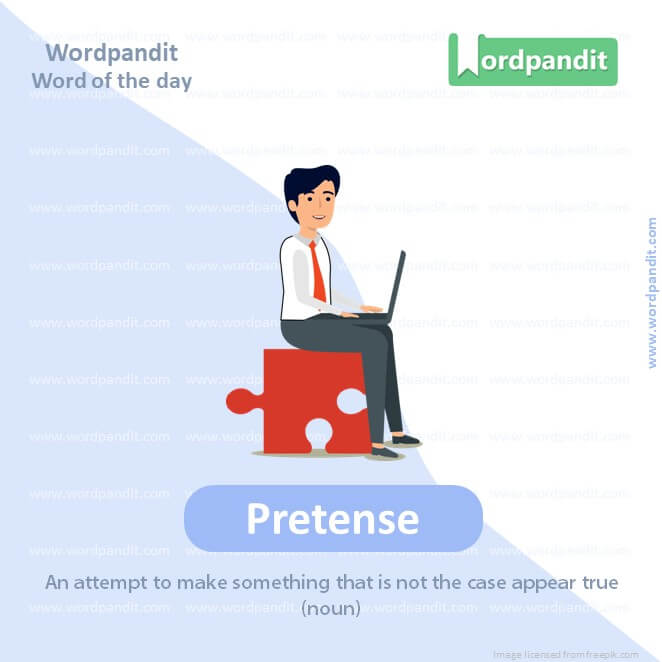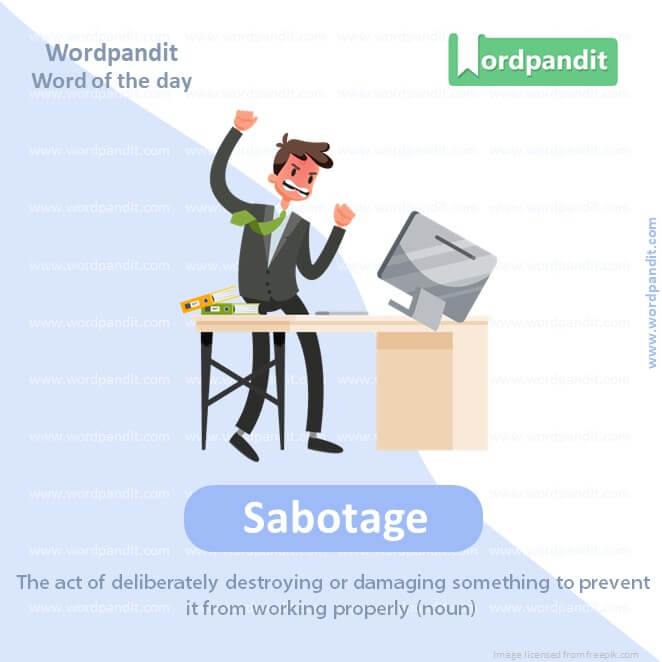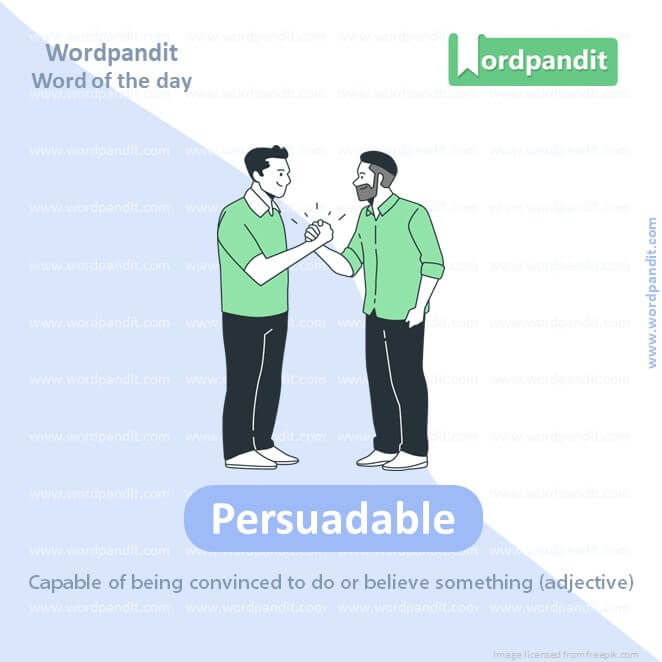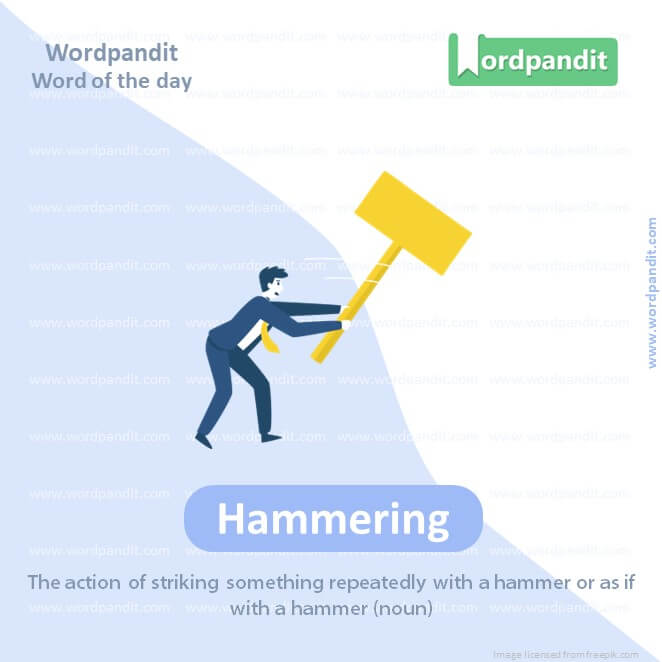Daily Vocabulary Words: Enhance Your Lexicon with Leading Newspapers & Publications
Welcome to the Daily Vocabulary section at Wordpandit!
Our mission is straightforward: to bring you essential vocabulary words featured in top newspapers and publications worldwide. By focusing on words you’ll encounter in renowned sources, we aim to help you enhance your vocabulary effectively and practically.
Our selection includes words from:
– The New York Times
– The Washington Post
– Scientific American
– BBC
– The Guardian
– Psychology Today
– Wall Street Journal
– The Economist
– The Hindu
– The Times of India
– The Economic Times
– Hindustan Times
– Live Mint
– The Indian Express
– And many more.
We are committed to your vocabulary development. Simply visit this section regularly and explore the daily posts. This is your go-to repository for commonly used words, providing significant practical benefits by familiarizing you with vocabulary from the leading publications listed above.
Make it a habit to visit our website daily and expand your lexicon with words from top newspapers and publications. (edited)

WORD-1: Pretense
CONTEXT: I make no pretense of expertise in poll analysis; I, like some others, suspect that this election may be more significant than pure number crunching suggests.
SOURCE: New York Times
EXPLANATORY PARAGRAPH: “Pretense” is when someone pretends or acts like something is true when it really isn’t, like pretending to be a superhero even though you’re just a regular kid. It’s about making something seem real when it’s not.
MEANING: An attempt to make something that is not the case appear true (noun)
PRONUNCIATION: pre-TENS
SYNONYMS: Facade, guise, illusion, deception, sham
USAGE EXAMPLES:
1. His smile was just a pretense to hide his true feelings.
2. She was caught in a pretense of being happy at the party.
3. The magician’s act was full of pretense and trickery.
4. The pretense of friendship disappeared once the truth came out.

WORD-2: Sabotage
CONTEXT: The starting point here is that our political system may be unique among democracies in its vulnerability to sabotage by a ruthless opposition party.
SOURCE: New York Times
EXPLANATORY PARAGRAPH: “Sabotage” means to intentionally mess up or ruin something, like if you deliberately make a toy break so no one can play with it. It’s about doing something on purpose to cause failure or damage.
MEANING: The act of deliberately destroying or damaging something to prevent it from working properly (noun)
PRONUNCIATION: SAB-uh-tahzh
SYNONYMS: Undermine, damage, disrupt, ruin, obstruct
USAGE EXAMPLES:
1. The company faced sabotage when someone tampered with their equipment.
2. He was accused of trying to sabotage the project out of jealousy.
3. Sabotage of the team’s efforts led to their unexpected failure.
4. The movie’s production was delayed due to acts of sabotage on set.

WORD-3: Persuadable
CONTEXT: The economy improving and persuadable voters beginning to recognize that improvement, the focus of the 2024 campaign.
SOURCE: New York Times
EXPLANATORY PARAGRAPH: “Persuadable” means being easily convinced to change your mind or opinion, like if you decide to eat ice cream just because your friend asked you nicely. It’s about being willing to listen and be influenced.
MEANING: Capable of being convinced to do or believe something (adjective)
PRONUNCIATION: per-SWAY-duh-buhl
SYNONYMS: Amenable, flexible, open, impressionable, malleable
USAGE EXAMPLES:
1. She is very persuadable and easily agrees to others’ ideas.
2. The politician spoke to persuadable voters to win their support.
3. Being persuadable can be helpful in negotiations and discussions.
4. He was more persuadable after hearing the detailed arguments.

WORD-4: Maneuvering
CONTEXT: This polling reflects an electorate that, for the most part, hasn’t been following the legislative maneuvering.
SOURCE: New York Times
EXPLANATORY PARAGRAPH: “Maneuvering” means carefully moving or handling something to achieve a goal, like guiding a toy car through an obstacle course. It’s about using skill to direct or adjust something.
MEANING: Skillful or strategic moving or planning (noun)
PRONUNCIATION: muh-NOO-vuhr-ing
SYNONYMS: Navigating, steering, directing, handling, adjusting
USAGE EXAMPLES:
1. The driver’s maneuvering helped avoid the traffic jam.
2. She was maneuvering the boat through the narrow canal.
3. Effective maneuvering is required for successful chess strategies.
4. The political leader’s maneuvering led to a significant policy change.

WORD-5: Hammering
CONTEXT: The prospect of an election in the near future, with Democrats hammering home the point that they are supporting border security measures while Republicans are blocking them.
SOURCE: New York Times
EXPLANATORY PARAGRAPH: “Hammering” means hitting something with a hammer repeatedly, like when you use a hammer to put nails into wood. It’s about making something happen by hitting it a lot.
MEANING: The action of striking something repeatedly with a hammer or as if with a hammer (noun)
PRONUNCIATION: HAM-uhr-ing
SYNONYMS: Pounding, hitting, striking, banging, bashing
USAGE EXAMPLES:
1. He was hammering the nails into the wall to hang the picture.
2. The carpenter’s hammering was loud but necessary for the construction.
3. She kept hammering the point until everyone understood.
4. The worker was hammering away to finish the project on time.
WORD-6: Obstructionism
CONTEXT: The border issue by staking out a tough position — basically the same position now held by Biden — while attacking Republicans for their obstructionism.
SOURCE: New York Times
EXPLANATORY PARAGRAPH: “Obstructionism” is when someone tries to block or prevent things from happening, like if someone keeps stopping a game because they don’t want to play. It’s about stopping progress or causing delays.
MEANING: The act of blocking or delaying progress, especially in a political or organizational context (noun).
PRONUNCIATION: uhb-STRUHK-shuh-niz-uhm
SYNONYMS: Hindrance, blocking, delay, interference, obstruction
USAGE EXAMPLES:
1. The policy faced obstructionism from several members of the committee.
2. Obstructionism can delay important legislation in government.
3. The project’s progress was slowed due to obstructionism from some team members.
4. His obstructionism was seen as a tactic to prevent the new rules from being implemented.
WORD-7: Fibbing
CONTEXT: Donald Trump gets a roughly $355 million fine for fibbing about his fortune.
SOURCE: New York Times
EXPLANATORY PARAGRAPH: “Fibbing” means telling a small lie or not telling the whole truth, like if you say you didn’t eat any cookies when you did. It’s about not being completely honest.
MEANING: The act of telling a small or trivial lie (verb, present participle).
PRONUNCIATION: FIB-ing
SYNONYMS: Lying, falsifying, stretching the truth, deceiving, misleading
USAGE EXAMPLES:
1. She was caught fibbing about where she had been last night.
2. Fibbing can sometimes lead to bigger problems if not addressed.
3. The child’s fibbing was obvious when the parents found the cookie crumbs.
4. He admitted to fibbing about his whereabouts to avoid trouble.
WORD-8: Chortling
CONTEXT: I would never want to stop you from chortling, but here goes: I think the case was ridiculous and the verdict outrageous.
SOURCE: New York Times
EXPLANATORY PARAGRAPH: “Chortling” means laughing in a happy and excited way, like when you giggle with joy while playing a fun game. It’s a cheerful and joyful kind of laugh.
MEANING: To laugh in a gleeful and cheerful way (verb, present participle).
PRONUNCIATION: CHOR-tling
SYNONYMS: Giggling, chuckling, laughing, snickering, cackling
USAGE EXAMPLES:
1. The children were chortling
with delight during the party.
2. Her chortling was a sign of her amusement and happiness.
3. The comedian’s joke had the whole audience chortling.
4. They couldn’t stop chortling at the funny movie scene.
WORD-9: Inadequacy
CONTEXT: I realize Trump lies about most everything, probably owing to feelings of inadequacy about his … apartment size.
SOURCE: New York Times
EXPLANATORY PARAGRAPH: “Inadequacy” means not being good enough or not meeting the needed standards, like if your toy doesn’t work properly and can’t do what it’s supposed to. It’s about falling short of what is required.
MEANING: The state of being insufficient or not meeting a necessary standard (noun).
PRONUNCIATION: in-AD-uh-kwuh-see
SYNONYMS: Insufficiency, shortcoming, deficiency, failure, inadequateness
USAGE EXAMPLES:
1. He felt a sense of inadequacy when he couldn’t complete the task.
2. The project’s inadequacy was evident in the final report.
3. Inadequacy in training can lead to poor performance at work.
4. She struggled with feelings of inadequacy despite her efforts.
WORD-10: Defrauded
CONTEXT: You have Trump being accused of fraud without any of his creditors complaining of being defrauded, making the case ripe for being overturned on appeal or at least the amount he has been fined reduced.
SOURCE: New York Times
EXPLANATORY PARAGRAPH: “Defrauded” means being tricked into giving away money or something valuable by someone lying to you, like if someone says they’ll help you but takes your money instead. It’s about being deceived for personal gain.
MEANING: Having been tricked or deceived into giving away money or property (verb, past tense).
PRONUNCIATION: dih-FRAW-did
SYNONYMS: Cheated, swindled, deceived, conned, scammed
USAGE EXAMPLES:
1. They were defrauded by a fake investment scheme.
2. He realized he had been defrauded after the money was taken from his account.
3. The company was accused of having defrauded its customers.
4. She reported the fraud to the police after being defrauded of her savings.
Vocabulary In English
Dancing within the vibrant scheme of language learning, a profound understanding of ‘vocabulary in English’ is indispensable. These sets of words, serving as the pillars of communication, lay the foundation for effective and fluent exchange of ideas. Yet the question begs, how should one go about mastering ‘vocabulary in English’?
Embracing ‘vocabulary in English’ demands a well-rounded understanding, far more than mere surface memorization. It is of immense benefit to explore a variety of reading materials, such as books, newspapers, magazines, and online content. This broad exposure yields a practical understanding of how and when words are used, thereby enriching your command over ‘vocabulary in English’.
To aid the learning of ‘vocabulary in English’, memory-enhancement techniques come to the rescue. Regularly using flashcards, or applications that reinforce the principles of spaced repetition, can drastically improve memory retention. Aiding this, the use of mnemonic devices to associate words with unique stories or images in your mind has shown to greatly assist recall.
Practical application further paves the way for mastering ‘vocabulary in English’. By using the learnt words actively in your daily conversations, you cement their grasp in memory and understand their practical usage.
Rounding off, regular reviews of ‘vocabulary in English’ is the secret ingredient in the recipe for success. Consistent revision sessions solidify the retention of previously learned words and maintain a fresh connection with them.
To conclude, the path to mastering ‘vocabulary in English’ is an insightful journey, made enjoyable with diverse resources, effective memory techniques, practical usage, and regular review sessions. As you immerse into this linguistic voyage, every word you learn brews a unique tale, enhancing the narrative of your language proficiency and guiding you towards becoming a skilled communicator.













